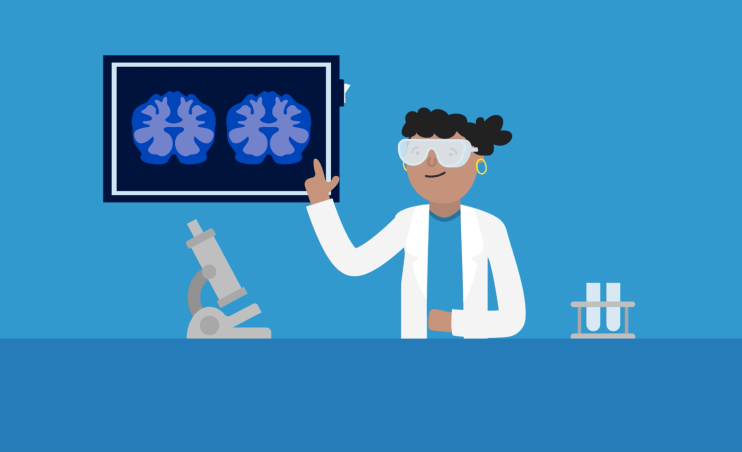Researchers at the Frank Porter Graham Child Development Institute are set to investigate the biological factors behind substance use and neurological and psychological elements contributing to substance use in adolescents displaying anxiety symptoms. The aim is to enhance precise, targeted interventions for these specific teenagers.
Unlocking The Biological Factors Behind Substance Use In Anxious Adolescents
In the realm of adolescent mental health, anxiety remains a widely diagnosed clinical symptom, serving as both a potent precursor to and an exacerbator of substance use disorders. Recognizing the urgent need for targeted interventions in this complex nexus, a groundbreaking endeavor is underway.
The Frank Porter Graham Child Development Institute, in collaboration with the UNC School of Medicine, has embarked on a remarkable five-year, $3.8-million study titled “Neurobiological Pathways from Anxiety Symptomology in Early Adolescence to Risk for Adverse Patterns of Substance Use.”
This study, funded by the National Institute on Drug Abuse, seeks to unravel the intricate neural and physiological mechanisms underlying the emergence of substance use in adolescents grappling with anxiety.
Co-principal investigators Dr. Aysenil Belger, a professor in the UNC Department of Psychiatry and director of the Clinical Translational Core at UNC Intellectual and Developmental Disabilities Research Center.
Dr. Diana Fishbein, senior scientist and director of translational neuro-prevention research at the Frank Porter Graham Child Development Institute at UNC-Chapel Hill, are at the helm of this groundbreaking research effort.
Their mission is to delve into the cognitive functions, stress physiology, brain circuits, and functions that distinguish adolescents with anxiety who transition to using psychoactive substances—such as alcohol—from those who do not.
With a multidisciplinary team of researchers, the study promises to illuminate critical insights into the underlying biological and psychological drivers of this intricate relationship.
The study’s scope is ambitious, encompassing a comprehensive investigation into various facets of adolescent development and mental health.
It is designed to provide a comprehensive understanding of the factors that influence the pathway from anxiety to substance use. To this end, the researchers will recruit participants aged 12-14 who report symptoms of anxiety.
This cohort will then be stratified based on a sophisticated tool developed by Dr. Ty Ridenour, a senior research analyst at RTI International and co-PI, which assesses risk factors including home environment, peer influences, cognitive functioning, impulsivity, risk-taking behaviors, and other pertinent aspects.
This stratification aims to identify those individuals who carry an elevated risk of transitioning to substance use.
The study’s intricate design involves a longitudinal approach, involving multiple assessments over five years—baseline, 12 months, and 24 months. The participants will undergo magnetic resonance imaging (MRI) while engaging in tasks that measure cognitive control, impulsivity, and executive decision-making.
Furthermore, physiological responses to social stressors, including heart rate, perspiration, and changes in the stress hormone cortisol, will be meticulously measured.
In-depth surveys and toxicology screens will provide invaluable insights into substance use patterns and various other child characteristics.
The study’s goals are twofold. First, it aims to identify the predictors of adverse patterns of substance use in adolescents presenting anxiety symptoms. Second, it seeks to decipher the intricate neurobiological mechanisms that underscore this interplay between anxiety and substance use.
This knowledge will serve as the bedrock for the development of personalized interventions aimed at preventing the progression toward substance use pathways.
Dr. Belger underscores the critical nature of this research by emphasizing the dearth of understanding surrounding the biological nuances that contribute to the susceptibility to substance use in certain individuals.
She envisions a future where identifying these biological markers can enable proactive interventions, enhancing cognitive skills and stress management to divert individuals from adverse trajectories.
Dr. Fishbein adds a vital dimension to the study’s importance by highlighting that anxiety symptoms if left unaddressed, can weaken the effectiveness of interventions aimed at preventing substance use.
By shedding light on the biological underpinnings of anxiety and their intersection with substance use, this study aims to pinpoint crucial periods in child and adolescent development that present the most promising opportunities for effective interventions.
In essence, this ambitious endeavor holds the potential to revolutionize the landscape of adolescent mental health care.
By marrying scientific inquiry with a profound commitment to understanding the intricacies of anxiety and substance use, the research undertaken by the Frank Porter Graham Child Development Institute and its collaborators opens doors to targeted, personalized interventions that can reshape the trajectories of young lives.
In a world where mental health interventions remain a pressing priority, this study serves as a beacon of hope, illuminating pathways to a future where proactive care and nuanced understanding converge to create positive change.


